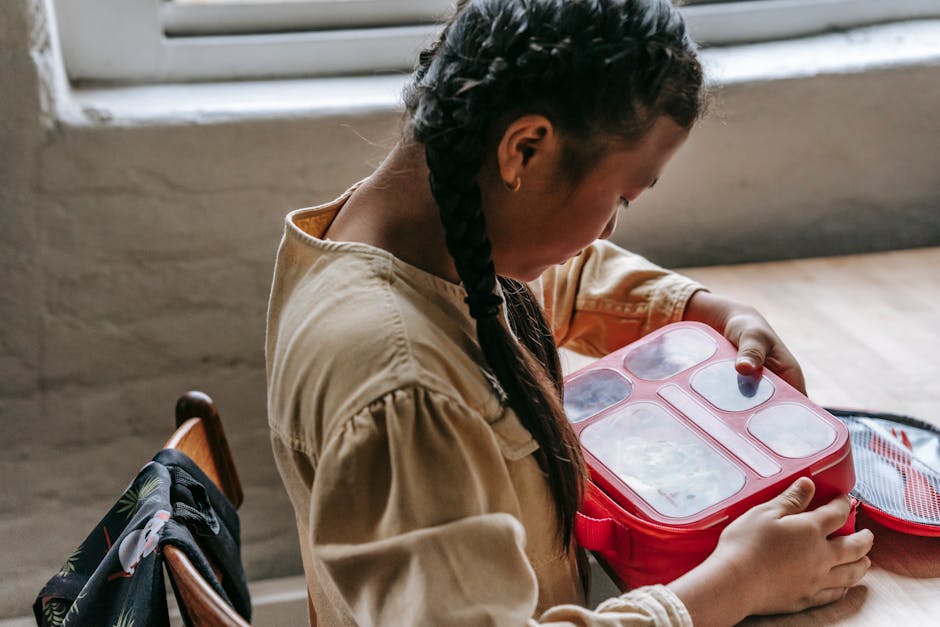As teenagers navigate through their formative years, it is crucial for them to cultivate an open mind and embrace new ideas and possibilities. In an ever-changing world, the ability to adapt and think critically is essential for personal growth and professional success. In this blog post, we will explore five effective techniques that teenagers can employ to broaden their perspectives and embrace the endless opportunities that lie ahead. By implementing these strategies, young individuals can develop a mindset that is receptive to innovative ideas and ready to seize new possibilities. So, let us delve into the world of personal growth and discovery, and discover the power of an open mind.
Understand the importance of open-mindedness in personal growth and development

To foster personal growth and development, teenagers must cultivate an open-minded attitude. Open-mindedness allows them to explore new ideas, embrace different perspectives, and discover various possibilities. By understanding the significance of open-mindedness, teens can develop the ability to adapt to new situations and expand their horizons.
One of the main advantages of being open-minded is that it creates an environment conducive to learning. When teens approach new experiences with an open mind, they are able to absorb information more effectively. This not only enhances their knowledge base but also enables them to develop critical thinking skills. By actively seeking out diverse viewpoints and opinions, they can better understand the world around them.
Moreover, open-mindedness empowers teenagers to break free from self-imposed limitations. When they embrace new ideas and possibilities, they are more likely to overcome challenges and push beyond their comfort zones. By being open to different perspectives, they can tap into their creativity and think outside the box. This enables them to discover innovative solutions and explore opportunities that they may not have considered otherwise.
In addition, open-mindedness fosters empathy and understanding. Teenagers who are receptive to diverse ideas are more likely to appreciate and respect the differences in others. This promotes tolerance, inclusivity, and the ability to build meaningful relationships with people from various backgrounds. By understanding and valuing different opinions, they can engage in constructive dialogue and create a more harmonious and accepting society.
Ultimately, understanding the importance of open-mindedness in personal growth and development is essential for teenagers. By embracing new ideas and possibilities, they can enhance their learning, expand their horizons, overcome challenges, and build positive relationships with others. Encouraging teens to cultivate open-mindedness sets them on a path of continuous growth and prepares them for success in an ever-changing world.
Embrace curiosity and ask questions

Curiosity is the fuel that drives innovation and growth. As a teenager, you have a unique advantage – your thirst for knowledge and willingness to explore new ideas. Embracing curiosity will not only open your mind to new possibilities, but it will also help you develop critical thinking and problem-solving skills. Here are three techniques to help you nurture your curiosity and ask meaningful questions:
1. Seek out different perspectives: Often, we tend to surround ourselves with people who think and act like us. While there’s comfort in familiarity, it limits our exposure to different ideas and beliefs. Make a conscious effort to seek out individuals with diverse backgrounds, cultures, and experiences. Engaging in conversations with them will challenge your preconceived notions and expand your understanding of the world. Don’t be afraid to ask questions about their viewpoints – it will demonstrate your curiosity and show that you genuinely want to learn from them.
2. Stay curious and never stop learning: The world is constantly evolving, and there is always something new to discover. Make a habit of staying updated with current events, reading books on various subjects, and exploring different hobbies. The more you expose yourself to different areas of knowledge, the more opportunities you’ll have to ask questions. Whether it’s attending guest lectures, participating in workshops, or simply watching educational videos online, never miss a chance to learn something new and expand your horizons.
3. Challenge assumptions and dig deeper: It’s human nature to make assumptions based on limited information. However, assumptions can be misleading and limit our understanding of a given situation. When encountering new ideas or concepts, actively challenge your assumptions and ask probing questions. Don’t settle for superficial knowledge; instead, dig deeper to unravel the underlying principles and factors at play. By doing so, you’ll gain a deeper understanding of complex issues and uncover innovative solutions. Remember, great breakthroughs often come from questioning the status quo and challenging conventional wisdom.
Embracing curiosity and asking questions are integral to personal growth and success. By actively seeking different perspectives, staying curious, and challenging assumptions, you’ll foster a mindset of continuous learning and open yourself up to a world of new ideas and possibilities. So, as a teenager, embrace your innate curiosity and never stop asking questions – you never know what insights and opportunities may come your way.
Engage in diverse reading materials and explore different perspectives

One effective technique for teenagers to open their minds to new ideas and possibilities is to engage in diverse reading materials and explore different perspectives. By reading a wide range of books, articles, and essays from various genres and authors, teens can expose themselves to different worlds, experiences, and viewpoints.
Reading materials that cover different cultures, histories, and societal issues can broaden a teen’s understanding of the world and challenge their existing beliefs. Encouraging them to explore literature from different time periods and countries can provide valuable insights into diverse perspectives, customs, and ideologies.
Additionally, teenagers can benefit from reading books that present different social, political, or philosophical viewpoints. By exposing themselves to ideological diversity, they can develop critical thinking skills and learn to evaluate and analyze arguments from various angles.
Online platforms and forums dedicated to discussing a wide range of topics can also help teenagers explore diverse perspectives. Engaging in respectful and constructive debates can encourage them to examine their own beliefs, question assumptions, and consider alternative viewpoints.
Furthermore, reading materials featuring diverse characters and themes can promote empathy, compassion, and a deeper understanding of human experiences. Young adults’ literature, in particular, often tackles relevant and thought-provoking topics that can expand a teenager’s appreciation for diversity and inclusion.
Encouraging teenagers to not simply rely on mainstream media but to actively seek out alternative voices and narratives is crucial in helping them develop a more open and inclusive mindset. By embracing diverse reading materials and exploring different perspectives, teens can widen their horizon, challenge their own biases, and pave the way for innovative ideas and possibilities in their personal and professional lives.
Seek out opportunities to have conversations with people who hold contrasting viewpoints

In today’s rapidly changing world, it is essential for teenagers to cultivate an open mind that embraces new ideas and possibilities. One effective way to do this is by seeking out opportunities to have conversations with people who hold contrasting viewpoints. Engaging in discussions with individuals who have different perspectives can greatly broaden a teen’s understanding of the world and foster personal growth. Here are five techniques that teens can use to seek out these valuable conversations:
1. Embrace diversity: Actively seek out social settings, clubs, or groups where you can encounter individuals from various backgrounds and experiences. Engaging with people from diverse cultures, religions, or ethnicities will expose you to unique perspectives and help challenge preconceived notions.
2. Participate in debates or discussion forums: Joining debate clubs, attending public forums, or even participating in social media discussions can be excellent platforms for encountering different viewpoints. These platforms offer opportunities to engage in thoughtful debates and gain insights into alternative perspectives.
3. Attend events or workshops: Look out for events, workshops, or conferences centered around subjects you have an interest in. Attending such gatherings will give you the chance to interact with experts, professionals, and like-minded individuals who may hold diverse viewpoints.
4. Practice active listening: When engaging in conversations with individuals who hold contrasting viewpoints, it is crucial to practice active listening. Truly hearing and understanding the other person’s perspective without judgment or interruption allows for a deeper connection and more fruitful dialogue. This practice not only opens your mind to new ideas but also cultivates empathy and respect for others.
By actively seeking out opportunities to have conversations with people who hold contrasting viewpoints, teens can open their minds to new ideas and possibilities. Embracing diversity, participating in debates or discussion forums, attending relevant events, engaging in social groups, and practicing active listening are all techniques that can enhance personal growth and promote a more open and inclusive mindset. Remember, through these conversations, we can challenge our beliefs, expand our knowledge, and become better equipped to navigate an ever-evolving world.
Practice active listening and empathy

In today’s fast-paced world, it is crucial for teenagers to cultivate an open mind that embraces new ideas and possibilities. One powerful technique that can support this growth is practicing active listening and empathy. By genuinely engaging with others and understanding their perspectives, teens can broaden their own outlook and foster a more inclusive mindset.
Active listening involves being fully present when someone is speaking, without distractions or interruptions. It requires giving our undivided attention and demonstrating genuine interest in what the other person is saying. For teenagers, this means putting aside their own preconceived notions and biases, and truly being receptive to different viewpoints.
Empathy goes hand in hand with active listening. By empathizing with others, teenagers can develop a deeper understanding of their emotions, experiences, and needs. Empathy allows teens to put themselves in someone else’s shoes, reducing judgment and providing a more meaningful connection. It helps create an environment of trust and respect, where new ideas can be freely shared and explored.
One way to practice active listening and empathy is to engage in meaningful conversations with a diverse range of people. Encouraging teenagers to seek out perspectives that are different from their own can open their eyes to new ideas and possibilities. This might involve engaging in discussions with family members, friends, or even individuals from different cultures or backgrounds. By actively listening and trying to understand different viewpoints, teens can expand their horizons and challenge their own assumptions.
Another effective technique is to participate in activities that require teamwork or collaboration. Working together towards a common goal encourages teenagers to listen to and value other perspectives. Whether it is a school project, a community service initiative, or even joining a club or sports team, such endeavors provide opportunities for teens to practice active listening and empathy in a practical setting.
Practicing active listening and empathy also involves validating and acknowledging the emotions and experiences of others. Encouraging teens to express empathy by actively affirming and understanding the feelings of those around them fosters a sense of inclusivity and helps break down barriers to new ideas. This can be as simple as offering a kind word or a supportive gesture to someone who is experiencing a challenge.
Take part in activities and hobbies outside of your comfort zone

Many teenagers often find themselves trapped in their comfort zones, sticking to the activities and hobbies they are already familiar with. While familiarity can provide a sense of security, it can also hinder personal growth and limit the possibilities one can explore. To truly open your mind to new ideas and possibilities, it is crucial to venture outside of your comfort zone and engage in activities that are completely different from your usual interests.
Taking part in activities and hobbies outside of your comfort zone can be a transformative experience. It has the power to challenge your preconceived notions, broaden your horizons, and expose you to alternative perspectives. Whether it’s trying out a new sport, learning a musical instrument, or joining a debate club, these ventures into the unknown can unlock hidden potential and lead to personal growth.
By engaging in new activities, you expose yourself to a diverse range of people and experiences. This exposure can help you develop social skills, empathy, and an appreciation for different cultures and backgrounds. It also provides an opportunity to meet like-minded individuals who share your newfound interests, expanding your social circle and opening doors to new friendships and collaborations.
Additionally, exploring activities outside of your comfort zone can ignite your creativity and problem-solving skills. When faced with unfamiliar challenges, your mind becomes more adaptable and your ability to think critically is enhanced. This mindset can prove invaluable in various aspects of life, both academically and professionally.
Furthermore, stepping out of your comfort zone allows you to confront and overcome your fears and insecurities. By pushing your boundaries, you learn to embrace discomfort and develop resilience. This new-found confidence not only empowers you to take on new challenges but also strengthens your ability to adapt to change in an increasingly dynamic world.
To make the most of this technique, start by identifying an activity or hobby you have always been curious about but have never pursued. Join a class, club, or group that focuses on this interest, where you will be exposed to individuals who share your passion. Embrace the discomfort that comes with the unfamiliar and give yourself permission to make mistakes as you learn and grow.
Challenge your own beliefs and preconceived notions

As a teenager, it is common to hold strong beliefs and preconceived notions about the world. However, in order to grow and expand our perspectives, it is essential to challenge our own beliefs and remain open to new ideas and possibilities. Here are eight techniques that can help teenagers open their minds to new horizons.
1. Question your assumptions: Take a moment to reflect on your beliefs and ask yourself why you hold them. Is it based on personal experience, facts, or simply inherited from others? By questioning your assumptions, you can gain a deeper understanding of your own beliefs and be open to alternative viewpoints.
2. Seek diverse perspectives: Surround yourself with people from different backgrounds, cultures, and experiences. Engage in conversations and listen attentively to other people’s viewpoints. This exposure to diverse perspectives can broaden your understanding and help you see issues from multiple angles.
3. Embrace discomfort: Stepping out of your comfort zone is essential for personal growth. Challenge yourself to try new things, whether it’s reading a book on a topic you know little about, taking up a new hobby, or engaging in activities outside your usual interests. Embracing discomfort allows you to confront unfamiliar territory and expand your horizons.
4. Educate yourself: Stay informed about current events, global issues, and emerging trends. Read books, articles, and listen to podcasts that cover a range of topics. By acquiring knowledge, you can better understand the complexities of the world and form informed opinions.
5. Engage in debates: Participating in respectful debates and discussions can expose you to different viewpoints and help you develop critical thinking skills. Be open-minded and willing to consider opposing arguments, even if they challenge your own beliefs. Engaging in debates encourages intellectual growth and helps you see the strengths and weaknesses of different perspectives.
6. Travel and explore: Traveling to new places offers a wealth of opportunities to learn and experience different cultures firsthand. Exploring new environments exposes you to diverse traditions, beliefs, and ways of life. By immersing yourself in unfamiliar surroundings, you become more adaptable and open to embracing new ideas.
7. Practice active listening: When engaging in conversations with others, practice active listening. Avoid interrupting or dismissing their ideas prematurely. Instead, genuinely listen to understand their perspective. Reflect on their points, ask clarifying questions, and show empathy. Active listening fosters mutual respect and creates a space for meaningful dialogue.
8. Keep an open mind: Above all, maintain an open mind. Recognize that your beliefs and perspectives may evolve and change over time. Be receptive to new information and willing to adjust your viewpoints accordingly. Embracing an open mind allows for personal growth and the discovery of exciting new possibilities.
Reflect on personal experiences and learn from them

One powerful technique that teenagers can use to help open their minds to new ideas and possibilities is to reflect on personal experiences and learn from them. Our own experiences serve as valuable teachers, providing us with insights and lessons that can guide us towards personal growth and broaden our perspectives.
When reflecting on personal experiences, it is important for teenagers to approach this process with an open mind and a willingness to critically analyze their actions, decisions, and outcomes. By taking the time to review past experiences, they can gain a deeper understanding of their strengths, weaknesses, and areas for improvement.
Reflecting on personal experiences also involves examining the thought processes and beliefs that influenced their actions and decisions. This introspection allows teenagers to challenge any limiting or narrow-minded perspectives they may hold and actively seek out alternative viewpoints. By recognizing the link between their thoughts, actions, and outcomes, they can begin to identify patterns and make conscious efforts to adopt more open-minded attitudes.
Furthermore, reflecting on personal experiences can help teenagers embrace failure as an opportunity for growth rather than a setback. By examining the reasons behind past failures, they can identify areas where they need to develop new skills or adopt different strategies. This process of self-reflection allows teenagers to approach future challenges with a growth mindset, viewing setbacks as stepping stones rather than roadblocks.
To facilitate this reflection process, teenagers can engage in activities such as journaling, meditation, or discussions with trusted mentors or friends. These practices provide an opportunity for introspection, allowing them to delve deep into their thoughts and emotions, and gain a clearer understanding of their experiences.
In conclusion, reflecting on personal experiences can be a powerful technique for teenagers to open their minds to new ideas and possibilities. By critically analyzing their actions, thoughts, and outcomes, they can learn valuable lessons, challenge limiting perspectives, and embrace failure as an opportunity for growth. Encouraging teenagers to engage in regular self-reflection will help cultivate an open-minded approach to life and allow them to embrace new opportunities and possibilities with enthusiasm.
--------------------
By: Willis
Title: 5 Ways To Be More Open Minded To New Ideas And Possibilities
Sourced From: williscoaching.com/5-ways-to-be-more-open-minded-to-new-ideas-and-possibilities/
Published Date: Sat, 11 Nov 2023 21:22:33 +0000
No comments:
Post a Comment